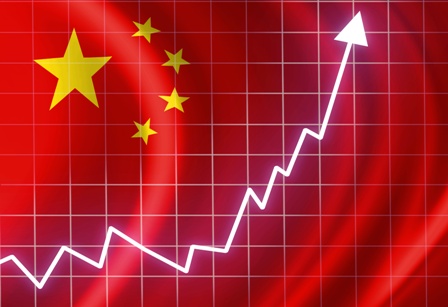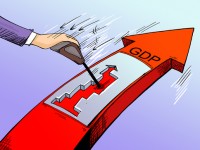
Zhong Wei, Professor, Beijing Normal University
Apr 28, 2017
Despite China’s struggle to identify new drivers of growth, there are many positive indicators in the economy right now. We should be more result-focused and open-minded about China’s economic pursuit, and be willing to see the positive side while weighing the country’s economic future.
Stephen Roach, Senior Fellow, Yale University
Oct 27, 2016
China is increasingly portrayed as the next disaster in a crisis-prone world. Stephen S. Roach disagrees, recognizing his minority opinion. Roach argues that without China, the world economy would already be in recession, citing the IMF’s October World Economic Outlook.
Yi Xianrong, Researcher, Chinese Academy of Social Sciences
Aug 12, 2016
China’s economy did not get out of the difficulty of downward pressure and was mainly fueled by real estate and price increases in the first half of the year. If China’s central bank tightens its monetary policy to some extent, the real estate market may start a periodic adjustment to be more sustainable, but the growth picture will be less rosy for the second half of 2016.
Jul 15, 2016
China’s economy grew 6.7 per cent in the second quarter, unchanged from the previous three-month period, as a buoyant property market and government stimulus boosted demand for factory output.
Zhang Jun, Dean, School of Economics, Fudan University
Jul 04, 2016
The accuracy of China’s official GDP and growth rates has long been a hotly debated topic, with the detention in January of Wang Baoan, the director of the country’s National Bureau of Statistics, on graft charges intensifying doubts about the agency’s integrity.
Yu Yongding, Former President, China Society of World Economics
Jun 06, 2016
China’s economic growth has been slowing for six years – far longer than expected. Eager to stem the slide, Chinese government officials and economists have desperately sought a clear explanation pointing toward an effective policy response.

Yu Yongding, Former President, China Society of World Economics
Mar 09, 2016
Despite slower growth and two parallel spirals weighing down the Chinese economy, its economic fundamentals are not that bad thanks to its high saving rate and relatively strong fiscal position. If the government can implement an appropriate policy mix and successfully promote creation and innovation, the economy can rebound and return to a slower but still inspiring growth path.

Yi Xianrong, Researcher, Chinese Academy of Social Sciences
Feb 02, 2016
There is no need to worry about the slide in China’s GDP growth and its turbulent financial markets, because the market economy has taken root across the country — a market of 1.4 billion consumers. Pressures from regional setbacks can be absorbed by the greater national economy, as long as the government pursues its transition from a real estate-driven economy.
Keyu Jin, Professor, London School of Economics
Nov 12, 2015
When it comes to economic rebalancing, China will need to be patient, recognizing that the current generation is simply too fixated on saving to provide the kind of surge in consumption that is needed. There are steps policymakers can take to accelerate progress, but, until the next generation grows up, real progress will have to wait.
Oct 19, 2015
China's economic growth eased to 6.9 percent in the third quarter from a year earlier, beating expectations but still the slowest since the global financial crisis, putting pressure on policymakers to roll out more support measures as fears of a sharper slowdown spook investors.
Back to Top

- China-US Focus builds trust and understanding between the U.S. and China through open dialogue among thought leaders.
- Our Offerings
- Topics
- Videos
- Podcasts
- Columnists
- Research Reports
- Focus Digest
- Stay Connected
-
Thanks for signing up!
- Get the latest stories from China-US Focus weekly.